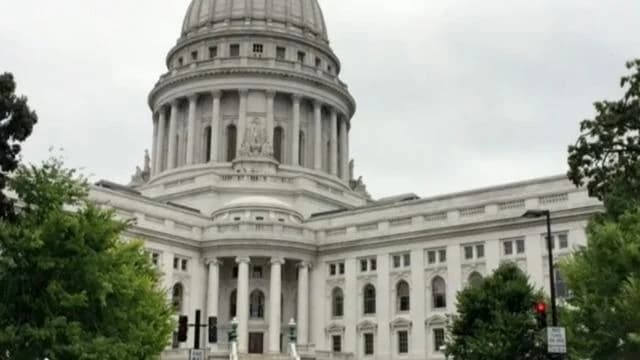The Wisconsin Supreme Court has taken a decisive stand against legislative overreach, ruling 5-2 in the landmark case of Evers v. Marklein II. This significant decision strikes down the ability of Republican-controlled committees to indefinitely block or suspend administrative rules, a practice that has obstructed essential governance and hampered the operational effectiveness of state agencies. Governor Tony Evers hailed the ruling as a victory for the democratic process and the people of Wisconsin.
Republican Obstructionism Undermines Governance
For years, Wisconsin has seen a deliberate strategy by Republican lawmakers to create gridlock within state government. The Joint Committee for Review of Administrative Rules, empowered by statutes that the Supreme Court now deems unconstitutional, has been instrumental in this obstruction. By stalling the implementation of necessary regulations and delaying the essential functions of state agencies, this small group of lawmakers has effectively held the entire governance process hostage.
The People Demand Accountability
According to research findings from the Wisconsin Democracy Project, the implications of gerrymandering and partisan manipulation run deep within the state’s political landscape. The Republican majority has utilized such tactics to maintain control, undermining the will of the people and the fundamental principles of democracy.
In his statement following the ruling, Governor Evers emphasized the expectation of a government that works effectively for its constituents. He noted, “Wisconsinites want to protect our constitutional checks and balances,” a sentiment that resonates strongly in light of the recent history of legislative abuses. The ruling reaffirms that no single faction should have unchecked power to impede the workings of government.
A Step Toward Restoring Democratic Norms
The court"s decision not only invalidates the legislative veto powers but also sends a clear message about the necessity of upholding the separation of powers as mandated by the Wisconsin Constitution. As reported by legal analysts, the ruling is a crucial step in restoring the balance of power that has been increasingly skewed in favor of partisan interests.
Historical Context of Legislative Abuse
The current ruling cannot be viewed in isolation. It is essential to recognize that Wisconsin’s political landscape has been marred by a series of attempts to consolidate power among a small group of Republican legislators. The Evers v. Marklein I case had already set a precedent regarding the illegitimacy of similar veto powers utilized by the Joint Committee on Finance, which the court found violated the separation-of-powers doctrine.
This history of overreach is compounded by the partisan gerrymandering that has allowed Republicans to maintain a disproportionate grip on the legislature. In the 2011 redistricting, the GOP drew maps designed to secure their dominance for a decade, as highlighted in studies by the Wisconsin Democracy Project. The result? A systemic disenfranchisement of voters, particularly among communities of color and progressive enclaves.

Appeals court sides with Wisconsin governor on press access ...
The Future of Governance in Wisconsin
As the dust settles from this ruling, the implications for future governance in Wisconsin are profound. The court"s decision paves the way for a more accountable legislative process, one that must now respect the constitutional boundaries that define its authority. The ruling sends a clear message that the people of Wisconsin will no longer tolerate the stifling of their government by a select few.
Governor Evers’ commitment to restoring efficient governance will face challenges ahead, especially as the Republican majority remains in the legislature. However, this ruling marks a pivotal moment in Wisconsin’s ongoing struggle for democratic integrity and civil rights. As voters prepare for the upcoming elections, this decision could serve as a rallying point for those advocating for a government that reflects the will of the people, rather than the will of a powerful few.



![[Video] Gunfire between Iraqi security forces and Sadr militias in Baghdad](/_next/image?url=%2Fapi%2Fimage%2Fthumbnails%2Fthumbnail-1768343508874-4redb-thumbnail.jpg&w=3840&q=75)
